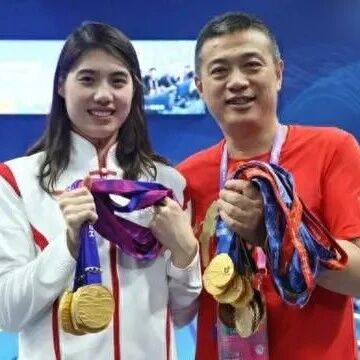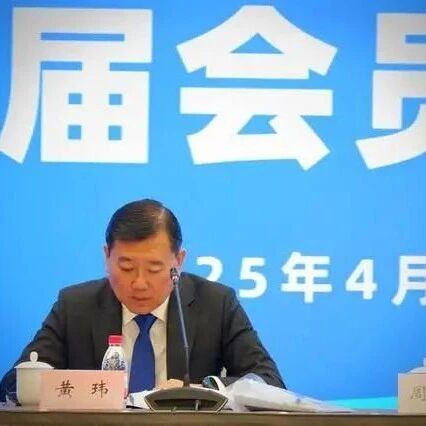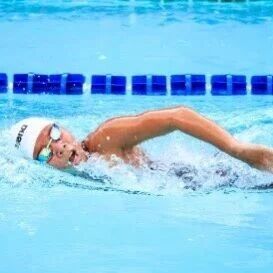Facing Cyberbullies and Viral Scrutiny: Pan Zhanle’s Confusion and Clarity
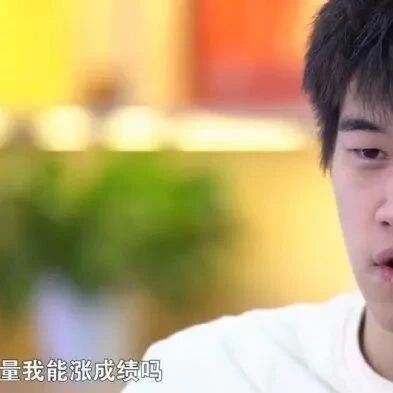
After his trip to Xinjiang, Pan Zhanle once again appeared in front of the camera, openly and candidly discussing personal attention and the topic of "traffic"—showing both honesty and clarity.
“I don’t like (this kind of traffic). I want *this* traffic—will it help me improve my results? (This traffic) can it even get me down to 46.39 or 46.38 seconds? And honestly, I’d actually prefer fewer people paying attention to me.”
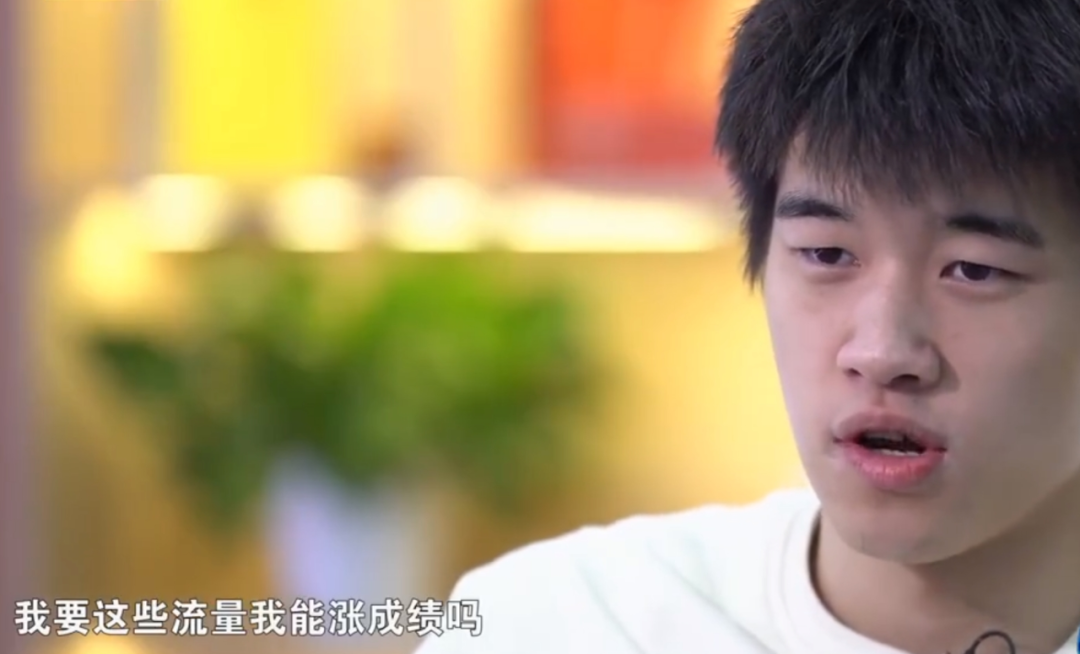
Today, Pan Zhanle is undeniably a rising star in the sports world, drawing everyone's attention—every move he makes instantly comes under the spotlight.
During the Olympic champion's visit to Xinjiang, every word he says, every sip of water he takes, and even every bite of an apple could become a major attention-grabber—every single camera would be trained on him. Sometimes, Xiao Pan feels uncomfortable and instinctively raises his hand to shield himself: "Don't film me!"
Xiao Pan said himself: "In Doha, I broke the world record—yet no one knew who I was. No one even recognized me. When I mentioned Pan Zhanle to people, they’d ask, 'Who's that? Don't know him.' They only knew Sun Yang and Wang Shun as swimmers. But after this Olympic Games is over, suddenly everyone will recognize me. It’s just how reality works."
“They don’t come looking for me when I need them, but now that they’re reaching out, it feels awkward. And that’s one of the downsides of being famous—too many people are always surrounding you.”
You can hear it—the journey from being unknown to suddenly making a splash, from going unnoticed to having every word and action instantly drawing attention. Even Pan Zhanle himself went through a process of shifting from discomfort to acceptance.
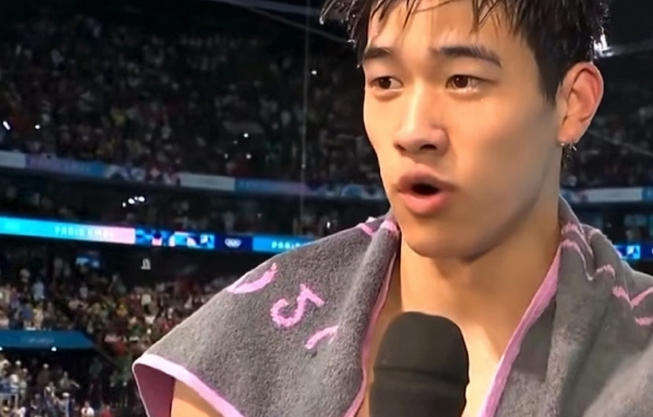
Just as in history, Chinese athletes have also gone through a process of developing their ability to express themselves to the media and audiences—moving from having nothing at all to becoming increasingly confident and skilled.
In the 1980s and 1990s, athletes often appeared tense and stumbled over their words when facing the camera—or else they could only recite their prepared scripts.
Since the beginning of the new century, athletes' individual cultural awareness and communication skills have significantly improved, with an increasing number of athletes now capable of articulating their views and ideas with ease.
Today, in Pan Zhanle's generation, athletes not only excel in communication skills but have also elevated them further, developing the ability to deliver "finishing touches"—every word they say is packed with insight, every sentence becomes a memorable quote.
During a visit to a military camp in Xinjiang, Pan Zhanle chatted with the soldiers, leaving behind this poignant exchange: "Our efforts have all been showcased, but your (the soldiers') hard work remains unseen—yet without you, there would be no us." Listening to these words, one can’t help but appreciate their clarity, brevity, and profound depth.
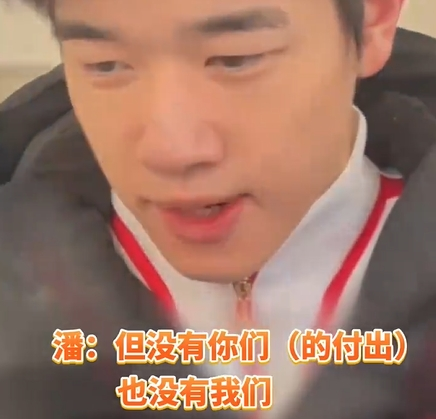
This group of elite athletes, having experienced so much, generally share this trait: shooting champion Li Yuehong, when asked whether "apples are sweet," replied, "Apples are sweet— but the people of Xinjiang are even sweeter"; meanwhile, Zhang Yufei remarked, "I’m not just myself—I’m also representing the 1.4 billion people of my motherland."
These short yet profound statements can be seen as a new skill for athletes in the digital age—details through which they shine even more brightly with their unique personalities, further boosting their online visibility and appeal.
But traffic is a double-edged sword.
During this trip to Xinjiang, Pan Zhanle shared a personal dilemma in a private conversation with fellow journalists: "I don’t understand—when you say I’m bringing glory to my country, why are there still people online criticizing and even attacking me?"
"We had no choice but to reassure him: 'That's just how the internet works—now that you're a celebrity, it's only natural that some people will try to troll you or piggyback on your fame for their own gain.'"
In today’s era, the sports world is also embracing a trend of widespread entertainment. While performance and skill remain the foundation, what truly captures the attention of mainstream audiences are the entertainment elements that transcend traditional boundaries.
Among the "fans" who adore Pan Zhanle, quite a few probably couldn't even tell you what swimming event he competes in or his exact race times—instead, their focus is purely on how good-looking he is, how impressive his physique is, and what kind of music he likes to listen to. Meanwhile, as with any fan culture, where there are devoted fans, there are inevitably also detractors—making it two sides of the same coin.
When it comes to this fan-driven hype, you can see that Pan Zhanle feels somewhat resistant—his mindset is refreshingly straightforward: "I’m a swimmer. Just look at my results; there’s no need for all the extra noise, and definitely no need to let it disrupt my life."
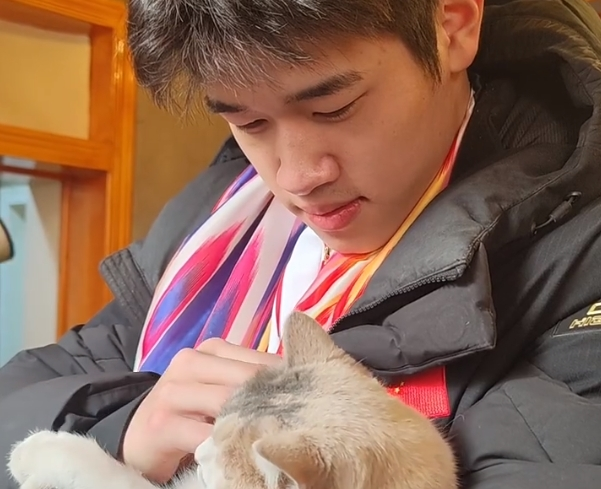
After the Olympics, Pan Zhanle disbanded his only fan group, reportedly due to concerns after private messages from the group were screenshot and leaked online. Later, he made a public statement in teammate Dong Zihao’s fan community, saying: "Let’s start by respecting privacy within our groups."
Pan Zhanle is actually quite "good" when facing the camera—he knows exactly what to say—but he still doesn’t enjoy being in the spotlight. Instead, he prefers the days when hardly anyone knew him.
"Now so many people are paying attention to me, but for me, it’s just one more competition—another chance to do what I’m supposed to do."
“From now on, I won’t even be able to go out alone—I’d prefer to keep a low profile and enjoy some peace and quiet. I also hope fewer people pay attention to me, so I can finally get back to living a normal life.”
Standing in the spotlight, Pan Zhanle has gradually grown accustomed to it—but dreaming of returning to a normal life? That’s simply no longer possible.
During this trip to Xinjiang, while exploring the Tianshan Tomur Grand Canyon, Pan Zhanle decided he wanted to rev up some excitement by driving an off-road vehicle. As soon as he climbed into the driver’s seat, his leaders and staff members immediately gathered around, sounding warnings: "Don’t take any risks!" "Why don’t you let the staff drive instead?" "Take it easy—slow down!" "Make sure you put on your helmet!"
At one point, the two sides reached a compromise: Xiao Pan gave up the driver’s seat and took the passenger’s spot, allowing the more experienced local driver to take the wheel. Soon after, the driver found himself surrounded by well-meaning reminders: "You can't drive too fast," "Take it easy," and "Be extra careful!"
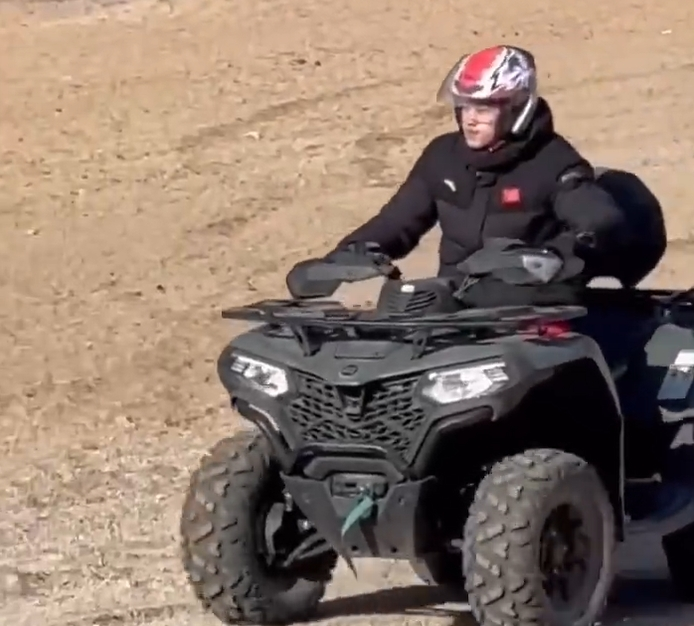
Later, unable to resist little Pan’s eager desire to give it a try, he finally took the driver’s seat. Watching him floor the accelerator as the car sped through the canyon—blazing past like a bolt of lightning—the entire team could hardly keep their hearts from racing into their throats. But just as he completed his exhilarating run and pulled back in, the boss chimed in: “That’s enough for now—time to call it a day. Let’s save the real fun for next time!”
There’s a wooden boardwalk winding through the canyon, and Pan Zhanle, Zhang Yufei, and the others had planned to venture deeper into the canyon to explore its hidden beauty. But once again, the team gently advised: "It just snowed—watch out, the boardwalk is slippery underfoot. Let’s stick to this point for now; there’s no need to go any farther." Though their adventurous spirits remained unfulfilled, the young explorers reluctantly put their plans on hold—for now.
However, the worries, concerns, and even "nagging" that prevent athletes like Pan Zhanle from living ordinary lives are entirely understandable—after all, they’re national-level athletes whose every move carries immense responsibility. If something were to go wrong in these minor details, the consequences could be disastrous. So, unfortunately, we’ll just have to put up with a bit of extra pressure for little Pan and the others.
Pan Zhanle is well aware of how much attention he’s currently receiving—after all, online traffic is like a halo: it may seem dazzling from the outside, but only if you’re already shining brightly yourself.
In a nutshell, as an athlete, performance comes first—results are the foundation, while popularity is merely a byproduct. Pan Zhanle knows clearly that the priority and importance of these two aspects cannot—and should not—be reversed.
Xiao Pan said, "Everything I have is earned through my own hard work and training."
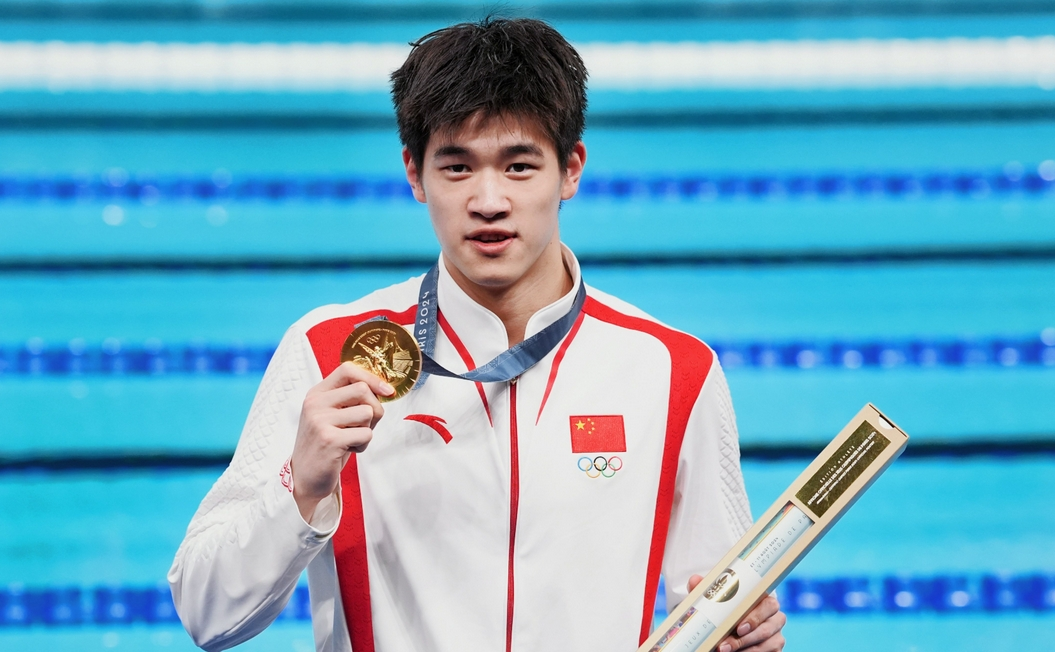
One more detail: During their trip to Xinjiang, Pan Zhanle and others repeatedly expressed their wish to swim in the hotel pool there, aiming to maintain a basic training routine. However, due to discrepancies between the pool's standards and the national team's rigorous training requirements, they ultimately couldn't make it happen.
On the night of the reception banquet at a certain venue, Pan Zhanle and others had planned to head to the hotel gym after dinner to work out on the equipment—but due to the late finish of the event, they ended up missing their chance.
When you see Olympic champions like Pan Zhanle laughing, joking around, and interacting enthusiastically with the media and fans in front of the camera, they’re fulfilling their off-field responsibilities—actively promoting and championing the Olympic spirit.
Yet deep down, they’ve always kept one crucial string taut: I’ll seize every available moment to train—training can’t be interrupted for too long.
As Pan Zhanle said in the interview: "If I skip training for just three or five days, I have to start all over again. After the Olympics ended, I restarted seven or eight times—maybe even more than ten—but it was incredibly grueling and exhausting, leaving me seriously doubting myself."
Next up is winter training—finally, they can fully immerse themselves in the pool and the gym. This is undoubtedly where Pan Zhanle and his teammates feel most at ease, most comfortable, and most connected. As he puts it: "Let’s focus on solid winter training; only by nailing this phase can we gain the confidence to think about other things. My approach? Simply keep working hard, pushing myself beyond limits, and constantly striving for new breakthroughs." (Pulley)
